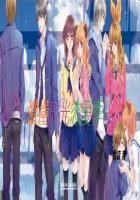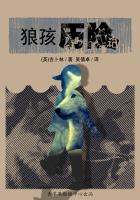So with the faculty of desire: what we call loose living is caused by its acting unaccompanied; it has done all of itself; the other faculties, whose business it is to make their presence felt in control and to point the right way, have lain in abeyance; the Seer in the Soul was occupied elsewhere, for, though not always at least sometimes, it has leisure for a certain degree of contemplation of other concerns.
Often, moreover, the vice of the desiring faculty will be merely some ill condition of the body, and its virtue, bodily soundness; thus there would again be no question of anything imported into the Soul.
3.But how do we explain likings and aversions? Sorrow, too, and anger and pleasure, desire and fear- are these not changes, affectings, present and stirring within the Soul?
This question cannot be ignored.To deny that changes take place and are intensely felt is in sharp contradiction to obvious facts.
But, while we recognize this, we must make very sure what it is that changes.To represent the Soul or Mind as being the seat of these emotions is not far removed from making it blush or turn pale; it is to forget that while the Soul or Mind is the means, the effect takes place in the distinct organism, the animated body.
At the idea of disgrace, the shame is in the Soul; but the body is occupied by the Soul- not to trouble about words- is, at any rate, close to it and very different from soulless matter; and so, is affected in the blood, mobile in its nature.Fear begins in the mind; the pallor is simply the withdrawal of the blood inwards.So in pleasure, the elation is mental, but makes itself felt in the body;the purely mental phase has not reached the point of sensation: the same is true of pain.So desire is ignored in the Soul where the impulse takes its rise; what comes outward thence, the Sensibility knows.
When we speak of the Soul or Mind being moved- as in desire, reasoning, judging- we do not mean that it is driven into its act;these movements are its own acts.
In the same way when we call Life a movement we have no idea of a changing substance; the naturally appropriate act of each member of the living thing makes up the Life, which is, therefore, not a shifting thing.
To bring the matter to the point: put it that life, tendency, are no changements; that memories are not forms stamped upon the mind, that notions are not of the nature of impressions on sealing-wax; we thence draw the general conclusion that in all such states and movements the Soul, or Mind, is unchanged in substance and in essence, that virtue and vice are not something imported into the Soul- as heat and cold, blackness or whiteness are importations into body- but that, in all this relation, matter and spirit are exactly and comprehensively contraries.
4.We have, however, still to examine what is called the affective phase of the Soul.This has, no doubt, been touched upon above where we dealt with the passions in general as grouped about the initiative phase of the Soul and the desiring faculty in its effort to shape things to its choice: but more is required; we must begin by forming a clear idea of what is meant by this affective faculty of the Soul.
In general terms it means the centre about which we recognize the affections to be grouped; and by affections we mean those states upon which follow pleasure and pain.
Now among these affections we must distinguish.Some are pivoted upon judgements; thus, a Man judging his death to be at hand may feel fear; foreseeing some fortunate turn of events, he is happy:
the opinion lies in one sphere; the affection is stirred in another.
Sometimes the affections take the lead and automatically bring in the notion which thus becomes present to the appropriate faculty:
but as we have explained, an act of opinion does not introduce any change into the Soul or Mind: what happens is that from the notion of some impending evil is produced the quite separate thing, fear, and this fear, in turn, becomes known in that part of the Mind which is said under such circumstances to harbour fear.
But what is the action of this fear upon the Mind?
The general answer is that it sets up trouble and confusion before an evil anticipated.It should, however, be quite clear that the Soul or Mind is the seat of all imaginative representation- both the higher representation known as opinion or judgement and the lower representation which is not so much a judgement as a vague notion unattended by discrimination, something resembling the action by which, as is believed, the "Nature" of common speech produces, unconsciously, the objects of the partial sphere.It is equally certain that in all that follows upon the mental act or state, the disturbance, confined to the body, belongs to the sense-order;trembling, pallor, inability to speak, have obviously nothing to do with the spiritual portion of the being.The Soul, in fact, would have to be described as corporeal if it were the seat of such symptoms:
besides, in that case the trouble would not even reach the body since the only transmitting principle, oppressed by sensation, jarred out of itself, would be inhibited.
None the less, there is an affective phase of the Soul or Mind and this is not corporeal; it can be, only, some kind of Ideal-form.
Now Matter is the one field of the desiring faculty, as of the principles of nutrition growth and engendering, which are root and spring to desire and to every other affection known to this Ideal-form.No Ideal-form can be the victim of disturbance or be in any way affected: it remains in tranquillity; only the Matter associated with it can be affected by any state or experience induced by the movement which its mere presence suffices to set up.















